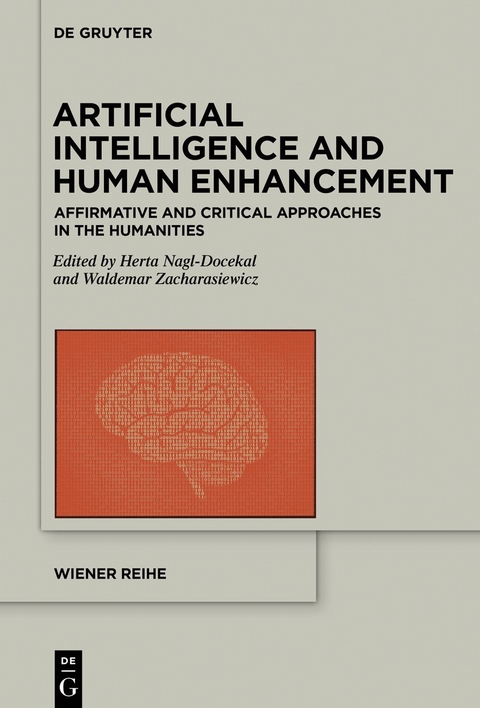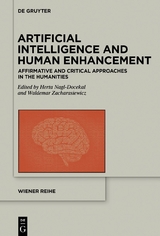Artificial Intelligence and Human Enhancement
Affirmative and Critical Approaches in the Humanities
Seiten
2022
De Gruyter (Verlag)
978-3-11-076991-3 (ISBN)
De Gruyter (Verlag)
978-3-11-076991-3 (ISBN)
The technological innovations that have made "learning" computers possible are being met with utopian hopes as well as apocalyptic apprehensions. Will AI research eventually lead to software systems that have consciousness and are capable of autonomous decision making? The essays challenge "strong AI" from the perspective of human agency and moral judgment, explain the categorical difference between vulnerable humans and AI devices, and discuss diverse forms of applied AI, such as prograns of natural language processing, computional creativity, neuroenhancement, and the use of AI in international healthcare. These theoretical issues are illustrated in essays that focus on the encounter with artificial beings in film, literature and theater. Examining science fiction that blurs the borderline between humans and deep-learning androids, the essays explore, and challenge, ways of questioning human exceptionalism, for instance by visualizing non-conscious cognition and sentience. The book suggests a sober distinction between well-argued achievements of digital technology and excessive, unfounded expectations.
lt;strong>Herta Nagl-Docekal and Waldemar Zacharasiewicz, University of Vienna, Vienna, Austria.
| Erscheinungsdatum | 28.03.2022 |
|---|---|
| Reihe/Serie | Wiener Reihe ; 21 |
| Zusatzinfo | 3 b/w and 13 col. ill., 3 b/w tbl. |
| Verlagsort | Berlin/Boston |
| Sprache | englisch |
| Maße | 155 x 230 mm |
| Gewicht | 616 g |
| Themenwelt | Geisteswissenschaften ► Philosophie ► Philosophie der Neuzeit |
| Schlagworte | Deep-Learning • digitaler Humanismus • digital humanism • Künstliche Intelligenz • Maschinelles Lernen • Post-humanism • Posthumanismus • Science Fiction |
| ISBN-10 | 3-11-076991-3 / 3110769913 |
| ISBN-13 | 978-3-11-076991-3 / 9783110769913 |
| Zustand | Neuware |
| Informationen gemäß Produktsicherheitsverordnung (GPSR) | |
| Haben Sie eine Frage zum Produkt? |
Mehr entdecken
aus dem Bereich
aus dem Bereich




